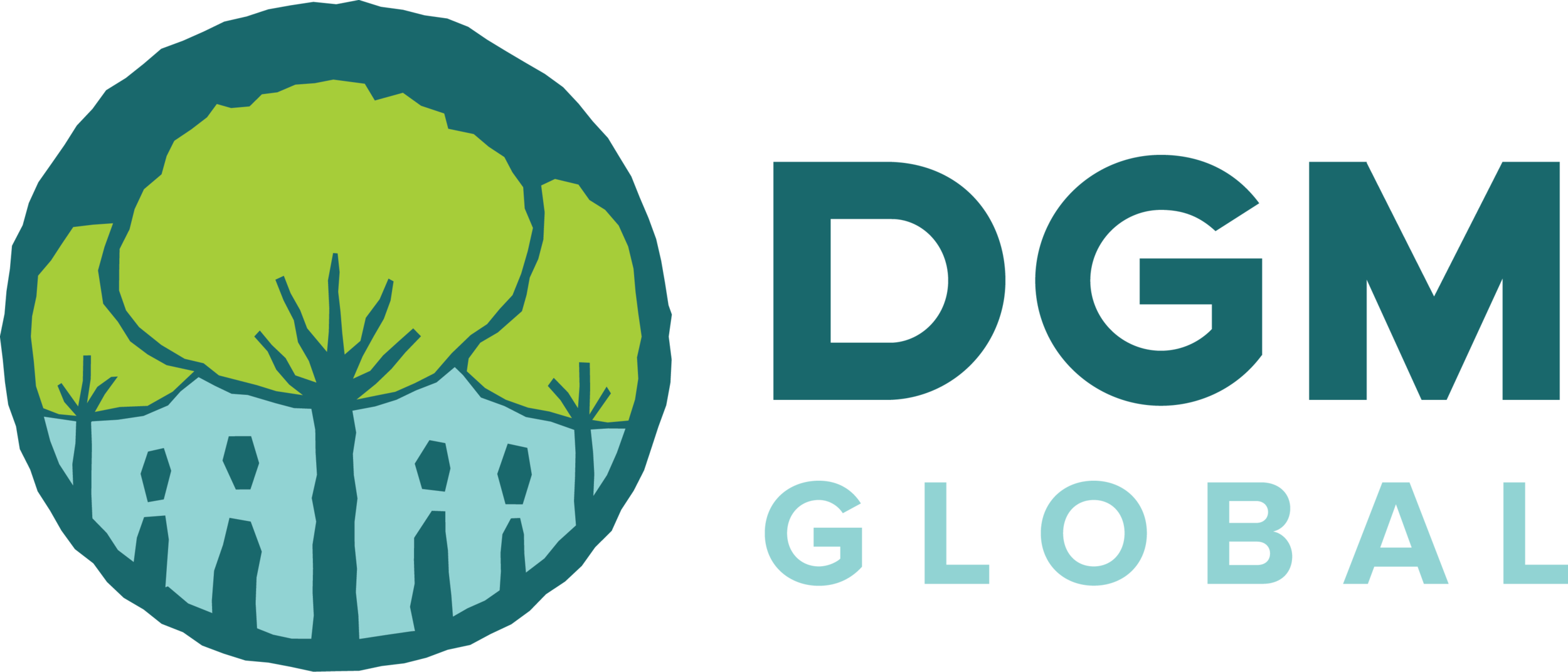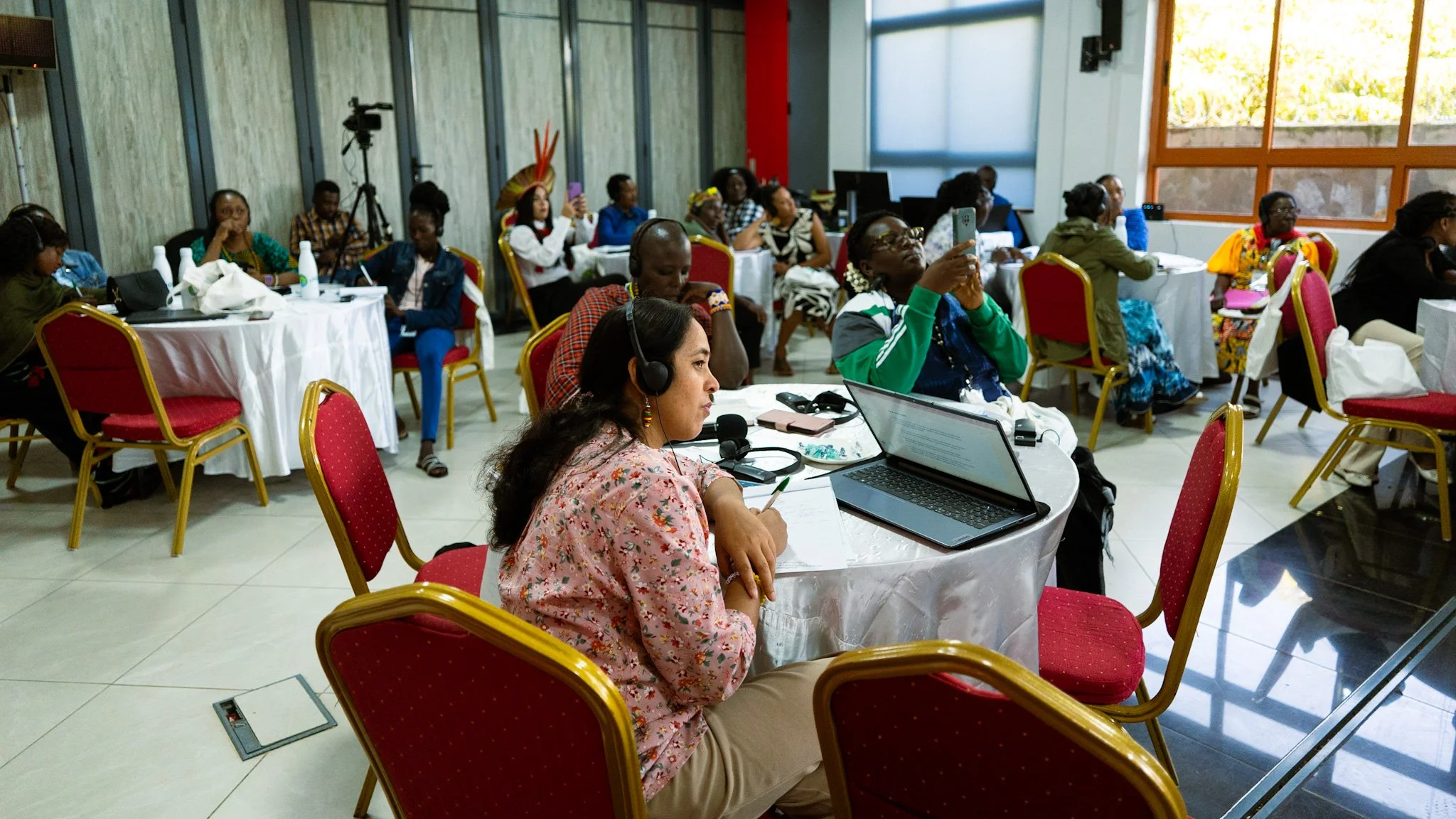Funding the Frontlines: IP&LC Women in Action
In May 2025, thirty-five Indigenous and local community women leaders from 15 countries gathered in Nanyuki, Kenya, for the Second DGM Global Women’s Training: Women’s Leadership for Inclusive Climate Governance. Hosted by IMPACT Kenya and co-organized by the Dedicated Grant Mechanism (DGM) Global, Conservation International, the Inclusive Conservation Initiative (ICI), and with collaboration from the UNDP Equator Initiative, this training deepened an ongoing movement to ensure Indigenous women have the skills, strategies, and support to shape climate governance at every level.
This second edition built on the momentum of the first global women’s training held in Brazil in 2024, bringing together emerging and established leaders to reflect, learn, and plan collective action.
“Indigenous women also possess knowledge—traditional knowledge—that is important and can inform climate action and policy. That is why it’s so important for Indigenous women to be financed to implement climate initiatives. ”
From Learning to Leading: Building Skills for Impact
Over four days, participants engaged in hands-on workshops, simulations, and field visits designed to strengthen their leadership and advocacy capacities. Topics ranged from decision-making structures in climate finance, inclusive governance, and conflict resolution, to public speaking and engaging men as allies. Participants also practiced real-time decision-making in simulated negotiation and conflict resolution cases with different actors.
These practical sessions were grounded in the lived realities of Indigenous women who face cultural, institutional, and financial barriers to leadership. Throughout the training, participants built a shared understanding of what meaningful participation looks like—and how to collectively push for systemic change.
“This training has been very exciting—listening and learning stories from different parts of the world about how women are taking part in governance structures. I’ve honestly learned how to effectively engage my community in driving sustainable change. I would say that we need to work on gender, just by saying that men are allies so they can consider us in decision-making. ”
Learning from the Land: Field Visits in Kenya
The women also visited two community projects led by Indigenous women supported by IMPACT Kenya, including a reforestation initiative and a cultural eco-tourism site. These visits were an opportunity to witness how women are restoring degraded lands, supporting local economies, and asserting leadership rooted in traditional knowledge.
Financing Indigenous Women-Led Solutions
Across conversations, one message came through clearly: Indigenous women are already leading solutions, but the financial systems meant to support climate action are not built with them in mind.
“The system also needs to change—there are too many barriers for women’s organizations to access funding directly. Trust between donors and Indigenous and women’s organizations must be prioritized and strengthened. Strategic allies can support implementation, but our autonomy and governance as Indigenous Peoples and Indigenous women must be respected. ”
Through the DGM structure—funded by the Climate Investment Funds (CIF) and implemented by the World Bank with Conservation International as Global Executing Agency—direct access is not just an idea, but a practice. Women involved in the DGM are not only beneficiaries, but decision-makers, trainers, and advocates.
As DGM celebrates 10 years of impact, the growing network of women leaders signals a broader shift: from participation to influence, from tokenism to transformation.
Watch the short documentary to hear directly from participants and relive key moments of the training.
By Lidiane Castro (Conservation International)





